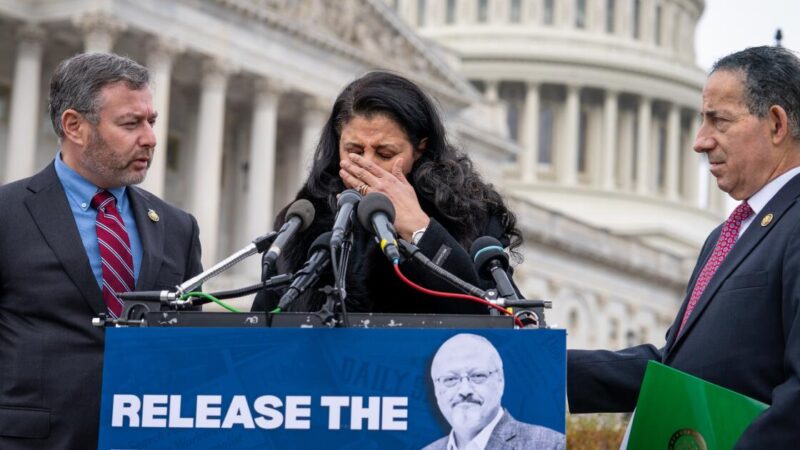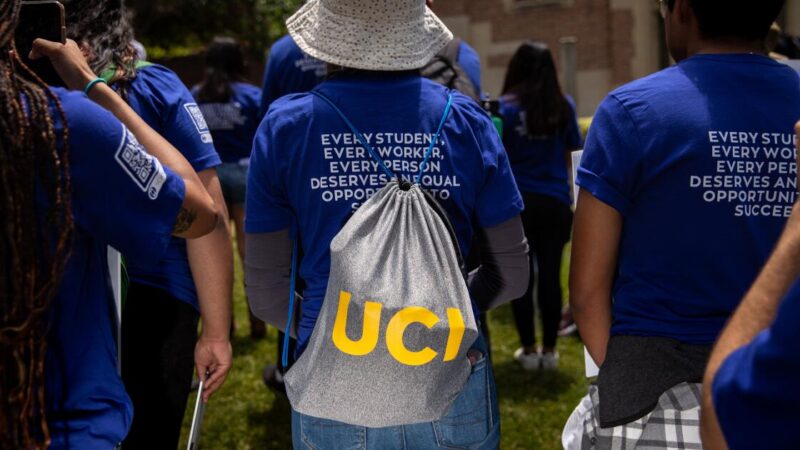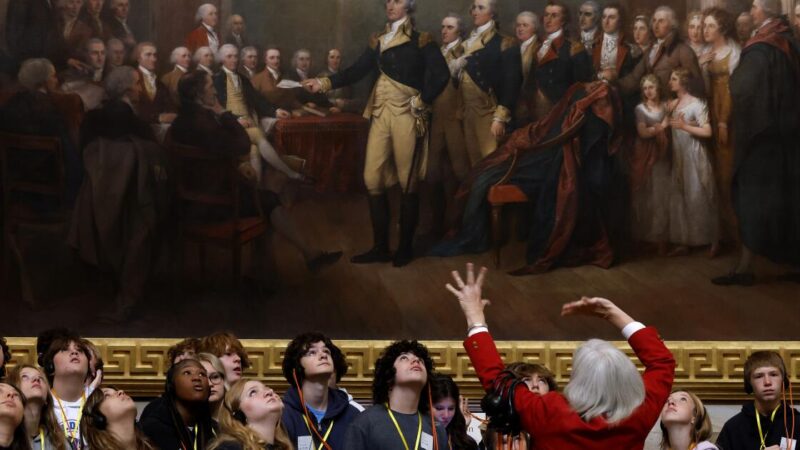Can this L.A. car wash survive Trump’s deportation campaign?
The car wash hadn’t yet opened for the day, but its owner was already on edge.
He scanned the street for law enforcement vehicles and hit refresh on a crowdsourced map that showed recent immigration sweeps.
“They were busy in our area yesterday,” he warned his employees. “Be careful.”
But except for staying home, there were few precautions that the workers, mostly men from Mexico, could take.
The business is located along one of L.A.’s busiest thoroughfares. Workers are exposed to the street as they scrub, wax and buff the parade of vehicles that streams in between 7 a.m. and 4 p.m., seven days a week.
Immigration agents descended on the business multiple times this summer as part of a broader campaign against L.A. car washes. Masked men hauled away around a dozen workers, most of whom were swiftly deported. The Times is not identifying the business, the owner or the workers.
The raids had spooked remaining employees — and many had stopped showing up to work. The replacements the owner hired were mostly other immigrants who showed him Social Security cards that he hoped were legitimate.
Still, it was an open secret that the car wash industry, which paid low wages for back-breaking labor, largely attracted people without legal status.
“Americans don’t want to do this work,” the owner said.
After the raids, he had been forced to close for stretches during the typically lucrative summer months. He was now operating normally again, but sales were down, he had maxed out his credit cards and he was unsure whether his business would survive. Clients — frightened by the raids — were staying away.
“My target is to pay the rent, pay the insurance and pay the guys,” the owner told his manager as they sipped coffee in the early morning November chill and waited for their first customer. “That’s it.”
The manager, also an immigrant from Mexico, nodded. He was juggling his boss’ concerns with personal ones. He and his team had all seen friends, relatives and co-workers vanish in immigration raids. He left home each morning wondering whether he would return in the evening.
The mood at the car wash had once been lighthearted, with employees joking as they sprayed down cars and polished windows. Now everybody, the manager included, kept one eye on the street as they worked. “We say we’re OK,” he said. “But we’re all scared.”
A few minutes before 7 a.m., a BMW sedan pulled in for a wash. The manager flipped on the vacuum and said a prayer.
“Protect me. Protect my colleagues. And protect the place I work.”
The owner was born abroad but moved to Los Angeles after winning the U.S. green card lottery.
He used his life savings to buy the car wash, which at the time seemed like a sound investment. There are some 36 million vehicles in California. And in Los Angeles, at least for most of the year, people can’t rely on rainfall to keep them clean.
His business already took a major financial hit this year during the L.A. wildfires, which filled the air with smoke and ash. Customers didn’t bother to clean cars that they knew would get dirty again.
Then came President Trump, who promised to deport record numbers of migrants.
I’m not brave. I need the work
— Car wash employee
Previous administrations had focused on expelling immigrants who had committed crimes. But federal agents, under pressure to meet arrest quotas, have vastly widened their net, targeting public-facing workplaces that pay low wages.
Car wash employees — along with street vendors, day laborers, farmworkers and gardeners — have become low-hanging fruit. At least 340 people have been detained in raids on 100 car washes across Southern California since June, according to the CLEAN Car Wash Worker Center, which advocates for workers in the industry.
The owner was shocked when agents toting rifles and dressed in bulletproof vests first stormed his business, blocking exits with their vehicles and handcuffing employees without ever showing a search warrant.
“It was a kidnapping,” he said. “It felt like we were in Afghanistan or Iraq, not in the middle of Los Angeles.”
Some of the men that the agents dragged away in that raid and subsequent ones had been living in the U.S. for decades. Many were fathers of American children.
The manager was racked with survivor’s guilt. He was from the same small town in Mexico as one of the men who was detained and later deported. Another worker taken by agents had been hired the same morning as the raid.
That’s when many employees stopped showing up. One stayed home for almost a month straight, surviving on groceries his friends and family brought to his apartment.
But eventually that employee — and his brother — returned to the car wash. “I’m not brave,” the brother said. “I need the work.”
The brother had been in the country for nearly 25 years and had three U.S.-born children, one of whom had served as a Marine.
He had toiled at car washes the whole time — crouching to scrub tires, stretching to dry roofs and returning home each night with aching heels and knots in his neck. Less punishing industries weren’t an option for somebody without valid work documents, he said, especially in the Trump era.
He had been at the car wash during one of the raids, and had avoided being detained only when the owner stepped in front of him and demanded agents speak to him first.
The man said he had made peace with the idea that his time in the U.S. might come to an end. “At least my children are grown,” he said.
The two brothers were working this brisk November day, hand-drying Audis, Mercedes and a classic Porsche. They earned a little over minimum wage, and got to keep most of their tips.
Their bosses had told them that if immigration agents returned, the workers should consider locking themselves inside the cars that they were cleaning. “Don’t run,” the manager said. “They’ll only chase.”
At the cash register, the cashier watched a website that tracked Immigration and Customs Enforcement actions around the region. So far, there was no activity nearby.
She had been present during the immigration sweeps, and was still mad at herself for not doing more to stop agents from taking her co-workers. “You think you’re gonna stand up to them, but it’s different when it happens,” she said. “I was like a deer in the headlights.”
As workers cleaned his Toyota Camry, a retired history professor waited on a bench, reading a biography of Ulysses S. Grant. The ICE raids had scared some clients away, but had prompted others to express their support. He said he had made a point to patronize the business because he was angry at the Trump administration’s immigration crackdown.
“They’re not getting the worst of the worst, they’re getting the easiest,” he said.
He noted that a friend of his — a Latino born in the U.S. — now carried a copy of his birth certificate. Just in case.
“That’s not the America I grew up in,” the customer said.
The owner of the car wash, too, was trying to square the promise of the United States with the reality that he was living.
“I thought Trump was a businessman,” he said. “But he’s really terrorizing businesses.”
The owner had paid taxes on his employee’s earnings, he said. So had they. “They were pushing the economy, paying rent, paying insurance, buying things.”
“Fine, take the criminals, take the bad guys,” he continued. “But these are hard workers. Criminals aren’t working at a car wash or waiting in front of a Home Depot.”
The owner had recently obtained American citizenship. But he was disillusioned — by the raids, L.A.’s homelessness crisis, high healthcare costs. He said his wife longed to leave the U.S. and return home.
“This is not the American dream,” he said. “This is an American nightmare.”
As the sun began to sink on the horizon, the last car of the day pulled out of the car wash — a sparkling clean Tesla.
The manager turned off the vacuum, recoiled hoses and exhaled with relief. He and his staff had survived another day. Tonight — at least — they would be going home to their families.





